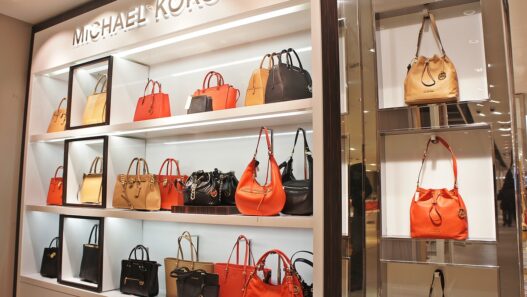It is of no doubt today that the African continent is fast becoming the new talk for global civilization. The question of how do we light up Africa has been at the heart of several sustainable development discourse and even more interesting is the fact that the region is soon becoming the new target for several top business executives in the world. That being said, the role of intellectual property rights in fast-tracking the attainment of these developmental goals can and should never be overemphasized. This is because innovation which lies at the heart of any meaningful development, can only be protected through a robust intellectual property framework. To this end, this article shall make an overview of the intellectual property framework in the African continent.
Overview of Intellectual property rights in Africa
The African intellectual property framework is modelled largely along with the international standards obtainable in several international intellectual property instruments such as the Berne Convention and TRIPS Agreement. In essence, most of the intellectual property laws in the African continent are usually extensions of the laws passed on to them by their colonizer countries with little modifications when needed to render them conformable to international practices obtainable in the treaties and international legal instruments.
To this end, intellectual property rights in the African continent as in other regions cover areas such as copyright, trademark, patents and industrial designs amongst others. Copyrights generally covers literary, artistic and musical works such as novels, poems, sound recordings and broadcasts amongst others. The general requirement to be eligible for copyright protection under most African copyright laws is originality and fixation.
Trademarks on the other hand protect brand identity and covers items such as logos, business names, trade dress amongst others. To qualify for trademark protection, the requirement in most Trademark laws in the region is distinctiveness and non-deceptiveness. Trademarks accounts for the most employed of all the IP regimes in the African continent. Patents on their own part, protect novel and non-obvious inventions and it is often use to fast-track technological advancement as it often serves as an incentive to inventors.
Administration of IP by the ARIPO
The African Regional Intellectual Property Organization (ARIPO) was established in 1977 following the adoption of the Lusaka Agreement. The organization is vested with the primary duty of fostering and promoting the development of the intellectual property framework of the member states by pooling financial and economic resources together to avoid duplication of resources. It consists of 18 member states which include, Botswana, Gambia, Ghana, Kenya, Namibia and Sierra Leone amongst others.
ARIPO’s mandate covers the protection of Copyrights, Trademarks, Patents, Utility models, Industrial design, Plant variety protection and Traditional Knowledge. Through the ARIPO, an applicant for any of the above listed categories of intellectual property rights, can by a single application designate any one of the Harare Protocol Contracting States or that of Banjul Agreement as the case may be, in which the applicant wishes the invention to be protected.
So far, ARIPO has contributed significantly in the quest towards adequate protection of industrial property rights. It has equally helped to simplify the application process as the system makes room for an e-filing and all forms of flexible application process which are not available in some of the individual African countries. ARIPO has also contributed significantly in the area of IP awareness and capacity building through several initiatives that have been set up such as the patent drafting courses and academic programs done in partnership with universities in member states amongst a host of others.
Challenges
Some of the challenges plaguing the African intellectual property frame work would now be examined below:
Defective legal framework
One major challenge to the development of intellectual property framework in Nigeria is the lack of an effective legal framework for this right. To start with, most of the applicable intellectual property laws in the African member states are laws passed to them as a result of their colonial ties. While some of them have been revised or re-enacted, there has not been so much changes between the former and the latter. It would however appear that most of these laws are due for review as many of them do not cater for the recent developments in modern technology and emerging business trends. For instance, most trademark laws in African states are yet to recognize scent marks, sound marks, slogans and other forms of emerging branding tools as protectible under the law. Again, most African states are also yet to recognize plant varieties as protectible under the law.
Lack of awareness
The majority of the African populace are still unaware of the many benefits of utilizing IP assets as a tool for fast-tracking business growth and development. Most SMEs especially do not see the need to utilize this mechanism as this is evident in the fact that most of the IP applications are usually made on behalf of foreign brands. In Nigeria for example, 99% of the patent applications are made on behalf of foreign brands. This portrays the fact that most indigenous businesses are yet to see the many benefits of having an IP portfolio.
Inadequate Personnel
The African IP sphere is also plagued with personnel who lack sufficient knowledge of how intellectual property works. A good example of these are the patent examiners in Nigeria who are not experts in the field of science and technology and often make judgements based on form only without any substantive examination.
Defective Enforcement
The government of most African states have not been so committed towards ensuring that intellectual property laws are obeyed and that infringers such as pirates are brought to book. The situation is even more serious in West African countries where estimates suggest that the Piracy level is as high as 85%.
The ready impact of this is that many IP rights owners do not get to maximize their IP rights as a result of piracy and counterfeiting while many others are discouraged from investing or seeking IP protection for their brands or products.
Recommendations
The following recommendations are suggested in order to improve the state of IP protection in African states
Legal Reform
There is need to make a comprehensive reform of the body of existing IP laws in African member states. Provisions of the law that do not cater for modern development in technology and business practices should be revised to do so. In addition, African states may need to work towards developing an IP framework that can cater for it peculiar needs rather than just adopting whatever is obtainable in western countries.
Capacity Building
There is need for frequent training and retraining of IP practitioners in the region. This would help to ensure that they are well-equipped with the adequate knowledge of IP laws. Judges especially needs to be trained on this field of the law as it appears that many of these judges especially in the Sub-Saharan Africa are not well-versed with deep knowledge of intellectual property.
Law Enforcement
As noted earlier, more needs to be done in the area of Ip law enforcement. There is need that governments in African regions takes proactive steps towards punishing infringers of intellectual property. A cross-border collaboration could also go a long way towards tackling piracy or counterfeiting that happens at the cross-border level. Additionally, it has also been observed that the penalties available to infringers are in some instances too minute. There may thus be a need to review the punitive sanctions.
Conclusion
Conclusively, a strong and resilient intellectual property framework would go a long way towards aiding the development of the African continent. There is a need for countries in the African continent to be more intentional towards creating an enabling IP framework that can serve as a catalyst for growth and development.
Author:
 Glory Oladipo is a third-year law student at the better by far University of Ilorin. He is passionate about issues that falls around the terrain of intellectual property and this has informed his bias for areas such as copyright, trademarks, patents and other aspects of Intellectual property law.
Glory Oladipo is a third-year law student at the better by far University of Ilorin. He is passionate about issues that falls around the terrain of intellectual property and this has informed his bias for areas such as copyright, trademarks, patents and other aspects of Intellectual property law.
Glory is an alumnus of the Harvard law copyright x course and has also been certified by other reputable organizations such as the World Intellectual property organization, where he completed the general course on intellectual property. Glory enjoys writing on topical issues in the intellectual property space and has a number of legal articles and essays credited to his name.
More recently, Glory developed a passion for fashion law through the Intellectual property club university of Ilorin and the African Fashion law where he was selected alongside other Intellectual property enthusiasts from across the globe, for a close-knit fashion law mentorship program handled by Fashion law experts selected from different jurisdictions. He has since developed a sudden interest for this field and continues to explores it.
Glory possesses a creative and analytical mind and an excellent problem-solving skill. At his spare time, he enjoys reading, writing and thinking. Glory is one of those who strongly believes that crafting an efficient intellectual property framework for Nigeria remains a catalyst for fast tracking innovation and boosting business efficiency across different industries.

















